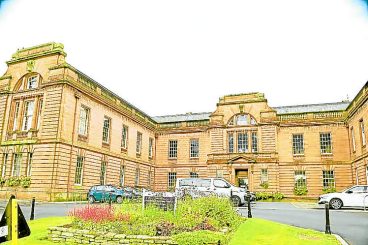Researchers at the University of Glasgow have analysed more than 800 letters and journals written by Burns, many while he lived locally, in an attempt to gauge his mental state.
After working on the project for almost four years, the team believe there is evidence to show that his mood cycled between depression and hypomania, a key indicator for mood conditions like bipolar disorder. They say this might explain the writer’s periods of “intense creativity, temperamental personality and unstable love life.” Publishing their findings in The Journal of the Royal College of Physicians of Edinburgh, the researchers analysed documents written by Burns between 1786 and 1795. Burns spent much of this time period living in Dumfries and working as an excise officer, with three months in December 1793 identified by Burns himself as a period of “melancholia” or depression.
In his writings at this time, the bard says he feels “altogether Novemberish, a damn’d melange of fretfulness and melancholy . . . my soul flouncing and fluttering.” Burns’ thoughts and feeling in two letters would meet the criteria for a diagnosis of clinical depression. Principal researcher Moira Hansen said: “We have pinpointed evidence which showed bouts of increased energy and hyperactivity, and periods of depression and a withdrawal from day-to-day life – we now believe Burns may have had what we would recognise today as bipolar disorder. “We will carry out further in-depth analysis to create a mood map of his life to chart these highs and lows, linking it to what was happening both in his private and public life to judge how it impacted on his writing.”
University of Glasgow professor of psychiatry Prof. Daniel Smith, who co-authored the research, said: “Carefully assessing the mood and behaviour of one of Scotland’s iconic figures, using both medical and literary expertise, is a new approach that helps to paint a picture of his mental health and how it affected both his life and writing. “We hope that the possibility that Scotland’s national bard, a global icon, may have had bipolar disorder will contribute to discussions on the links between mental illness and creativity. This work might also help to destigmatise psychiatric disorders such as bipolar disorder and depression.”
























